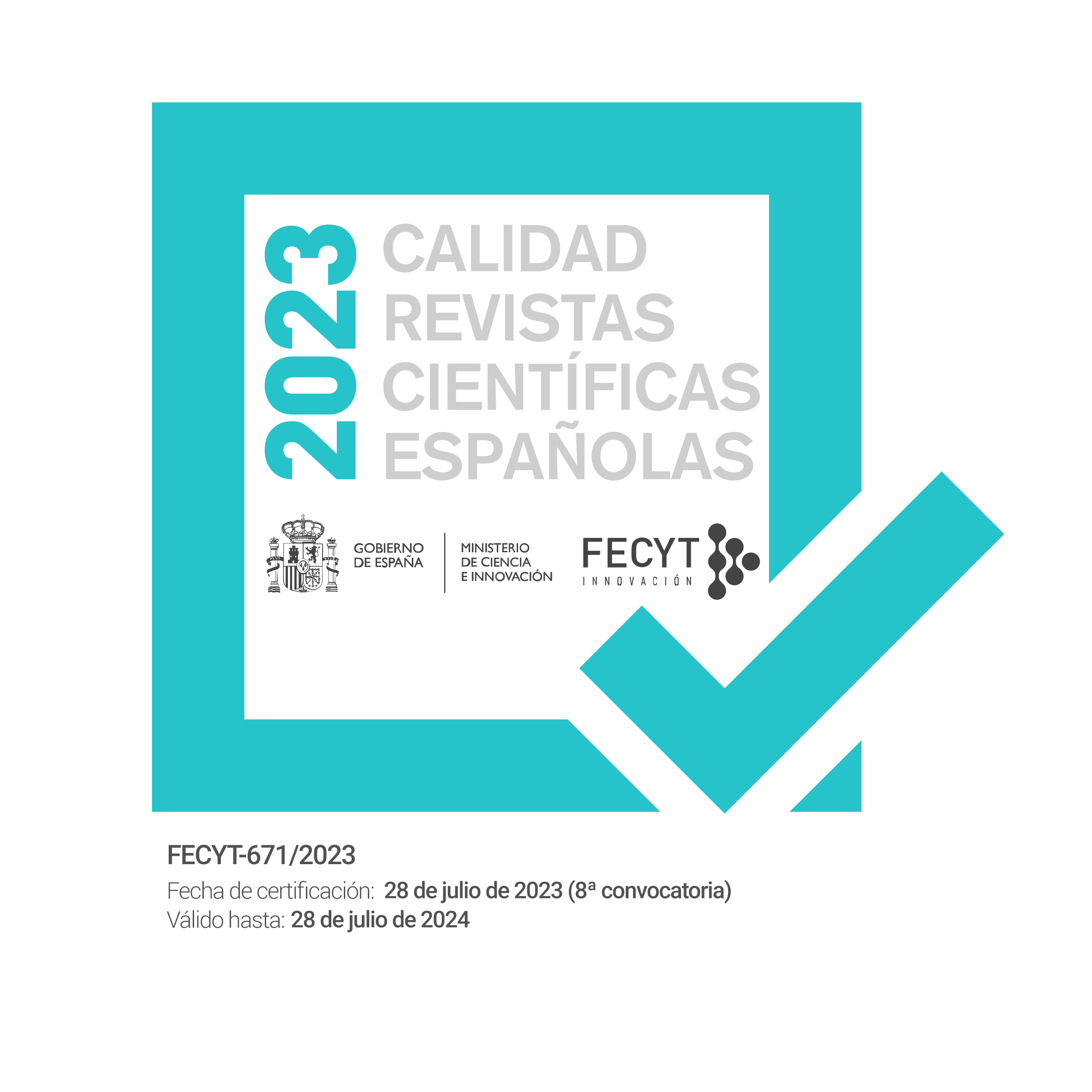Knowledge Production Methods in Human Rights Research: Constraints and Opportunities for the Promotion of an Interdisciplinary Approach
DOI:
https://doi.org/10.17561/tahrj.n13.5Keywords:
human rights, epistemology, knowledge production, interdisciplinary, research, institutionalization, academic structuresAbstract
This article asks about the current modes of production in human rights research and how they are (or may be) determined by the structures where that knowledge is generated. These questions will be answered by looking at the results of a preliminary study on the reception and subsequent institutionalisation of studies on human rights in stable structures that are dedicated to their research, training and dissemination in Spanish universities. The starting hypothesis is that this institutionalisation causes conceptual, epistemological and methodological biases in the rationales for knowledge construction in the field of human rights that determine and hinder the interdisciplinary approach demanded by its study. Interdisciplinarity has become a dominant aspect of human rights research. The question about how this feature is articulated and who articulates it in the academic institutional framework is pertinent in a field of knowledge that cannot avoid asymmetries in the production and circulation of knowledge. The results show that human rights research has been mainly institutionalised in stable university structures in Spain within the field of legal sciences, with a clear predominance of the area of the Philosophy of Law. It can be concluded that this has been conditioned by the reception and subsequent development of the study of human rights in Spain. While it has been found that the line developed by these centres and research groups has been consolidated and recognised, it can also be confirmed that their modes of knowledge production do not match the rationale of interdisciplinary research. These limitations are not just endogenous. There are some features of Spanish institutional R&D&i culture that make interdisciplinary research on human rights difficult.
References
Barry, A.; Born, G. and Weszkalnys, G. (2008). Logics of interdisciplinarity. Economy and Society 37(1), pp. 20-49. https://doi.org/10.1080/03085140701760841
Bobbio, N. (1990). Naturaleza y función de la filosofía del Derecho. In: ID. Contribución a la Teoría del Derecho. Madrid: Debate.
Bobbio, N. (1991). Sobre el fundamento de los derechos del hombre. In: ID. El tiempo de los derechos (Translation by Rafael de Asis Roig). Madrid: Sistema.
Brown, W. (1995). States of Injury: Power and Freedom in Late Modernity. Princenton: Princenton University.
Brown, W. and Halley, J. (2002). Left Legalism /Left Critique. Durham: Duke University Press. https://doi.org/10.1215/9780822383871
Cesarini, P. and Hertel, S. (2005). Interdisciplinary Approaches to Human Rights Scholarship in Latin America. Journal of Latin American Studies, 37(4), pp. 793-809. https://doi.org/10.1017/S0022216X05009879
Chandramohan, B. and Fallows, S. (eds.) (2009). Interdisciplinary learning and teaching in higher education. New York: Routledge. https://doi.org/10.4324/9780203928707
Clark R.B. (1983). The higher education system. Academic organization in cross-national perspective. Berkeley, LA: University of California Press.
Claude, R. P. (2002). Science in the service of human rights. Philadelphia: University of Pensylvania Press.
Del Real, J.A. (2011). La identidad de la Filosofía del Derecho como materia útil para juristas, Anuario de Filosofía del Derecho, 27, pp. 83-110.
Donnelly, J. (2003). Universal Human Rights in theory and practice. Ithaca: Cornell University Press.
Downing, T.E. and Kushner, G. (eds) (1988). Human Rights and Antropology. Cambridge: Cultural Survival.
European Commission (2015). Quests for interdisciplinarity: A challenge for the ERA and HORIZON 2020 Policy Brief by the Research, Innovation, and Science Policy Experts (RISE). Available at:
https://ec.europa.eu/research/openvision/pdf/rise/allmendinger-interdisciplinarity.pdf [Accessed: 01-06-2019].
Forsythe, D. P. (2017). Hard Times for Human Rights. Journal of Human Rights 16(2), pp. 242-253. https://doi.org/10.1080/14754835.2017.1313698
Freeman, M. (2011). Human Rights: an interdisciplinary approach, 2nd ed., Cambridge (UK): Polity Pres.
Frodeman R., Klein J. T., and Mitcham, C. (2010). Oxford Handbook of Interdisciplinarity. Nueva York: Oxford University Press.
Frodeman, R. (2014). The end of disciplinarity. In: Weingart, P. and Padberg B. (eds.), University experiments in interdisciplinarity. Obstacles and opportunities. Bielefeld: Transcript, Science Studies, pp. 175-198.
https://doi.org/10.14361/transcript.9783839426166.175
García Manrique, R. (1996). La filosofía de los derechos humanos durante el franquismo, Madrid: Centro de Estudios Constitucionales.
Geertz, C. (1980). Blurred genres: the refiguration of social thought, American Scholar, 42(2), pp. 165-179.
Gewirth, A. (1984). The Epistemology of Human Rights. Social Philosophy and Policy, 1(2), pp. 1-24. doi: 10.1017/S0265052500003836. [Accessed: 07-08-2019].
Gibbons, M., Limoges, C., Nowotny, H., Schwartzman, S., Scott P. and Trow, M. (2010). The New Production of Knowledge. The dynamics of science and research in contemporary societies. London: Sage Publications. doi: 10.4135/9781446221853 [Accessed: 07-08-2019].
Greenhill, B. (2015). Transmitting Rights. New York, NY: Oxford University Press.
Gordon, E. T. (1991). Antropology and Liberation. In: Harrsison, F, (ed.) Decolonizing antropology: Moving further toward an antropology for liberation. Washington D.C.: Association of Black Antropologists.
Gumport, P., and Snydman, S. (2002). The formal organization of knowledge: an analysis of academic structure. The Journal of Higher Education, 73(3), 375-408. https://doi.org/10.1080/00221546.2002.11777153
Hafner-Burton E. M. (2013). Making Human Rights a Reality. Princeton, NJ: Princeton University Press. https://doi.org/10.23943/princeton/9780691155357.001.0001
Haight W.L. and Bidwell, L. N. (2016). Mixed methods research for social work: integrating methodologies to strengthen practice and policy. Chicago, Illinois: Lyceum Books, Inc.
Haraway, D. (1988). Situated Knowledge: the science question in feminist as a site of discourse on the privilege of partial perspective. Feminist Studies 14(3), pp. 575-599. https://doi.org/10.2307/3178066
Harrison, M. (2005). ‘Reflexiones sobre el estudio de los derechos humanos y su fundamentación’, Universitas. Revista de Filosofía, Derecho y Política, 2, pp. 13-36.
Hirsch-Hadorn, G.; Hoffmann-Riem, H.; Biber-Klemm, S.; Grossenbacher-Mansuy, W.; Joye, D.; Pohl, C.; Wiesmann, U. and Zemp, E. (eds.) (2008). Handbook of transdisciplinary research. New York: Springer.
https://doi.org/10.1007/978-1-4020-6699-3
Holley, K. A. (2009). Understanding interdisciplinary challenges and opportunities in Higher Education. San Francisco: Jossey Bass.
Huutoniemi, K.; Klein, J. T.; Brunn, H. and Hukkinen, J. (2010). Analyzing interdisciplinary: typology and indicators. Research Policy, 39, pp. 79-88. https://doi.org/10.1016/j.respol.2009.09.011
Ignatieff, M. (2001). Human Rights as politics and idolatry. Princenton: Princenton University Press. https://doi.org/10.1515/9781400842841
Jacobs, J.A. and Frickel, S. (2009). Interdisciplinary: A critical assessment. Annual Review of Sociology, 35, pp. 43-65. https://doi.org/10.1146/annurev-soc-070308-115954
Klein, J.T. (1990). Interdisciplinary: History, Theory, and Practice. Wayne State University Press, Detroit.
Klein, J. T. (2008). Evaluating of interdisciplinary and transdisciplinary research. A literatura review. American Journal of Medicine, 35(2S), pp.116-123. https://doi.org/10.1016/j.amepre.2008.05.010
Klein, J.T. (2010a). ‘A taxonomy of interdisciplinarity’. In Frodeman R., Klein J. T. and Mitcham, C. Oxford Handbook of Interdisciplinarity. Nueva York: Oxford University Press, pp. 15-30.
Klein, J.T. (2010b). Creating Interdisciplinary Campus Cultures. San Francisco: Jossey-Bass.
Langford, M. (2016). Interdisciplinarity and Multimethod Research, University of Oslo Faculty of Law Research Paper no. 2016-30.
Lattuca, L.R. (2001). Creating interdisciplinarity. Interdisciplinary research and teaching among College and University Faculty. Nashville: Vanderbilt University Press.
Messer, E. (1993). ‘Antropology and Human Rights’, in Annual Review of Antropology, 221, pp. 224-255. https://doi.org/10.1146/annurev.anthro.22.1.221
Moyn, S. (2010). The last utopia: human rights in history. Cambridge, MA: The Belknap Press of the Harvard University Press.
Peces-Barba, G., (1973). Derechos fundamentales. I. Teoría General, Madrid: Guadiana.
Repko, A. and Szostak, R. (eds.) (2017). Interdisciplinary Research: process and theory. 3rd ed. Thousands Oaks, CA: Sage Publications. https://doi.org/10.4135/9781483349541
Repko, A., Newell, W. and Szostak, R. (eds.) (2011). Case studies in interdisciplinary research. Thousands Oaks, CA: Sage Publications.
Rivaya, B. (2009). ‘Historia política de la filosofía del Derecho española del siglo xx, DOXA, Cuadernos de Filosofía del Derecho, 32, pp. 541-582. Available at: https://rua.ua.es/dspace/bitstream/10045/20382/1/DOXA_32_22.pdf [Accessed: 23-05-2019].
Rivaya, B. (2010). Una historia de la Filosofía del Derecho española del siglo XX, Madrid, Iustel.
Spivak, G. (1988). Can the subaltern spreak? In: Nelson, C y Grossberg, L. (eds). Marxism and the interpretation of culture. Chicago: University of Illinois Press.
Uribe, C. (ed.) (2013). La interdisciplinariedad en la universidad contemporánea. Reflexiones y estudios de caso. Bogotá, Colombia: Pontificia Universidad Javeriana.
Vincent, R. J. (1986). Human Rights and International Relations. Cambridge (UK): Cambridge University Press.
Weingart, P. and Padberg, B. (eds) (2014). University experiments in interdisciplinarity. Obstacles and opportunities. Bielefeld: Transcript, Science Studies. https://doi.org/10.14361/transcript.9783839426166
Ziman, J. (2000). Real Science. What it is, and what it means, Cambridge, UK: Cambridge University Press. https://doi.org/10.1017/CBO9780511541391




























